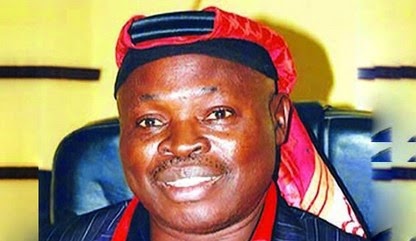With the new post-subsidy regime in place in Nigeria, many have spoken out against the development. There have been threats to do something similar to #OccupyNigeria. There’s a restlessness in the streets that seems like a calm before the storm.
The NLC have already vowed to fight the price hike in fuel and you need only look at social media to see that people are advocating pretty radical means to fight back.
According to The Muslim Rights Concern (MURIC) violence is certainly not the answer. The group believes that through dialogue between stakeholders, a logical conclusion can be reached.
They said this in a statement issued by their director, Professor Ishaq Akintola
The Federal Government (FG) yesterday announced the deregulation of the oil sector. The price of oil was raised from N85 per litre to N145 and below. A tornado of criticisms has greeted the new price and the Nigeria Labour Congress (NLC) has threatened a showdown with FG.
The Muslim Rights Concern (MURIC) calls on all stakeholders, particularly NLC, to do a critical analysis of the situation and adopt dialogue instead of open confrontation with the government on the issue.
We call attention to FG’s sober statement in which it described the decision to increase the price of petrol as ‘difficult and painful’. We regard such statement as emanating from a government which has feelings for the citizenry and considers itself as part of the masses.
There is an urgent need to recall the characteristics of good governance so far demonstrated by President Buhari’s administration. It has checked financial recklessness in the public sector. It has also imposed disciplinary measures on public officials.
Exempli gratia, some ministers are still squatting in Abuja because President Muhammadu Buhari refused to approve N200 million for each minister as done in past administrations. A ban has been placed on foreign medical treatment and travelling first class in aircrafts for public officials. Any government which takes these steps deserves the support of civil society and the ordinary citizens, not its antagonism. We should understand the difference between a financially prudent administration and a reckless and an overtly corrupt regime.
We therefore appeal to the NLC and the rest of civil society to adopt dialogue in the present circumstance. Civil society needs responsible leadership at this critical moment. It is true that we are the voice of the voiceless and defenders of the poor and downtrodden. But we are not just there to make noise arbitrarily. Good governance should be complemented with responsible and mature approach on the part of civil society.
Activists should not just make noise for the sake of making their presence felt. Neither should we dissipate energy unnecessarily. It is when we show understanding that we are being reasonable. It is irrational to go all out when government puts all the cards on the table for all to see. We are not enemies of the government. We are here to complement government’s efforts as partners in progress.
Civil society should therefore sit down to objectively appraise the situation. We should try to understand the raison d’etre for the removal of subsidy which includes the subsidy fraud phenomenon and the cabal behind it, the free fall in oil price, etc…
Although critics may argue that Nigerians should rise against the removal of oil subsidy because they resisted same during the Jonathan administration, we contend that the situation is now different and the same parameters cannot be applied. There was no fall in oil price when the ex-President removed oil subsidy. Nigeria was producing 2.4 million barrels of oil daily, selling at $93.61 per barrel, earning $224 million per day and $81 billion per annum.
The scenario has since changed for the worse and Buhari is now neck-deep in crisis management. As at 7th May 2016, Nigeria produced 2.7 million barrels per day and sold at $42.3 per barrel.
Whereas corruption was Nigeria’s middle name during the Jonathan era, the Buhari regime is globally certified as transparent and credible. We all should feel proud that both the Archbishop of Canterbury and Transparency International rose to Nigeria’s defence two days ago when David Cameron derogatorily referred to Nigeria as one of the two most corrupt nations of the world.
Only the tiny cabal would have benefitted from removal of subsidy under Jonathan. This informed the mass demonstrations at that time. But poor Nigerians stand to benefit if subsidy is removed under a transparent leader. That is why we do not need to agitate over the current increase. It is a difficult phase that will pass onto prosperity.
These are the yardsticks which objective critics and members of the civil society should be looking at. Not sentiments, not gallery dancing, not grandstanding. We should not play into the hands of corrupt politicians whose executive agent provocateur cum enfant terrible has already started inciting the NLC against FG.
Finally, we charge FG to set the machinery in motion for dialogue with NLC. We appeal to civil society, the press and all Nigerians to continue to support the central government in its quest to make life more meaningful to all.

